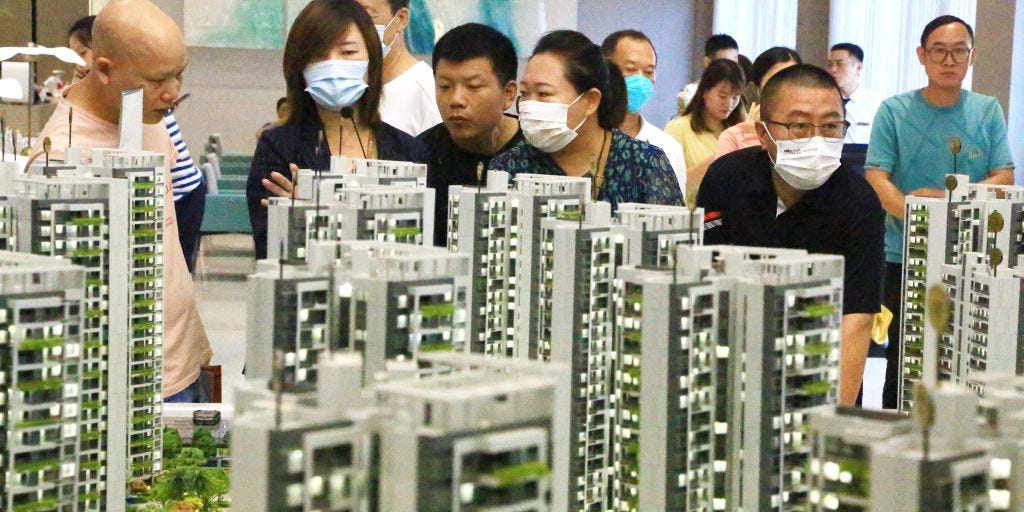- China's home values dropped year-over-year in March for new and used properties.
- Residential home sales fell by 31% last quarter, while property developers' cash reserves shrank by 26%.
- Chinese authorities reported a 9.5% drop in real estate development investment in the first quarter.
Home prices slumped in March, extending the housing market's decline and leaving authorities in Beijing scrambling for solutions to the country's real estate crisis.
Home prices in China sank compared to last year for both new and used properties, though there was a slight month–over-month improvement, according to Tuesday's National Bureau of Statistics data.
New-home prices in 70 cities — excluding state-subsidized housing — dropped 2.7% in March compared to a year ago, surpassing February's 1.9% decline. This also translates into a monthly drop of 0.34%, slightly less than February's 0.36% fall.
Meanwhile, existing home prices plummeted by 5.9% year-ver-year across all 70 cities, worsening from 5.2% in January. On a monthly basis, they dipped by 0.53%, showing a slight uptick from February's 0.62% decrease.
Tumbling prices have dampened residential home sales, which plunged 31% last quarter compared to the same time in 2023. Cash reserves of property developers also contracted by 26%.
Once a powerhouse and the lifeblood of the world's second-largest economy, China's real estate sector has taken a massive hit in recent years. Autonomous Research's analyst Charlene Chu said the nation's property market is "in the middle of a collapse," and that the situation is likely to get uglier.
Chinese authorities highlighted that investment in real estate development dropped 9.5% in the first quarter from 9% in the preceding two months.
China's economy has shown some signs of bouncing back recently. In the first quarter of this year, it grew by 5.3%, surpassing both analysts' expectations of 4.8% and the 5.2% growth in the fourth quarter of 2023.
That said, Beijing still faces big challenges to renewing growth and investors' confidence in the world's second-largest economy. With a struggling real estate sector and lukewarm consumer demand, Beijing is now steering the country toward growing sectors like electric vehicles, solar energy, and lithium-ion batteries, which analysts said would create a "two-speed economy," where some sectors thrive while others struggle or collapse.
